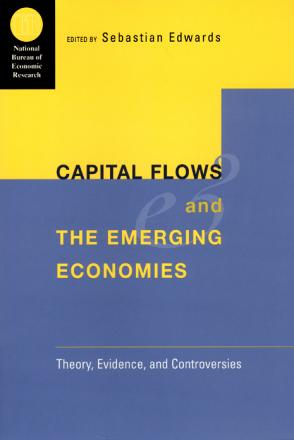Capital Flows and the Emerging Economies: Theory, Evidence, and Controversies

The 1990s witnessed several acute currency crises among developing nations that invariably spread to other nearby at-risk countries. These episodes—in Mexico, Thailand, South Korea, Russia, and Brazil—were all exacerbated by speculative foreign investments and high-volume movements of capital in and out of those countries. Insufficient domestic controls and a sluggish international response further undermined these economies, as well as the credibility of external oversight agencies like the International Monetary Fund. This volume examines the correlation between volatile capital mobility, currency instability, and the threat of regional contagion, focusing particular attention on the emergent economies of Latin America, Southeast Asia, and Eastern Europe.
Together these studies offer a new understanding of the empirical relationship between capital flows, international trade, and economic performance, and also afford key insights into realms of major policy concern.


